Series Title: Opioids – Is Fentanyl the Real Problem?
Part 1: The Crisis We Allowed to Happen
- Brief history of the opioid epidemic
- Key players: pharmaceutical companies, doctors, policy-makers
- The normalization of recreational opioid use
Part 2: Opioids 101 – From Painkiller to Killer
- List of common opioids: natural, semi-synthetic, synthetic
- How they work in the brain and why they’re addictive
- The cycle of tolerance, dependence, and desperation
Part 3: Fentanyl – Designed for Relief, Hijacked by Addiction
- Clinical use vs. street use
- Why it’s so potent and why it kills
- Global supply chains and trafficking
Part 4: Who’s Winning? Follow the Money
- Profiting from pain: physicians, pharmacists, and “non-profits”
- How ‘harm reduction’ sometimes becomes harm enablement
- The opioid economy: shelters, grants, services with no results
Part 5: Models and Madness – What the World Tries
- The Four Pillars model: prevention, treatment, harm reduction, enforcement
- Case studies: Portugal, Switzerland, Vancouver, U.S.
- What works, what fails, and what’s just theatre
Part 6: Warehousing the Addicted
- The failure to transition people to healing
- Massive spending with no exit plan
- Mental health, drug use, and the coming financial burden
Part 7: The Government’s Dilemma – Who Gets Saved?
- Medical care for the many vs. endless support for the few
- Political correctness vs. tough love
- What happens if they choose the wrong side?
Part 8: The Ugly Truth – Why No One Wants to Fix It
- Inconvenient interests: political, economic, ideological
- Addiction as a managed industry
- What a real solution might cost—and why it terrifies everyone
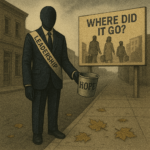 | Mar 19, 2025 – AI: To Eby Premier Of British Columbia British Columbia faces a growing debt issue that requires more than a carbon tax shift. Recommendations for politicians include cutting wasteful sp… |
 | Mar 19, 2025 – Opioid Crises- Death and Suffering The opioid crisis has evolved into an economic burden, costing taxpayers billions with minimal success in reducing addiction. Long-term effects of … |
 | Apr 6, 2025 – The Crisis We Allowed to Happen A sweeping overview of how the opioid epidemic began—from pharmaceutical greed to medical compliance, and how a permissive culture allowed it to sp… |
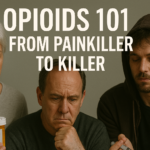 | Apr 13, 2025 – Opioids 101 – From Painkiller to Killer What are opioids, how do they work in the brain, and why is the cycle of addiction almost impossible to break once it starts? |
 | Apr 24, 2025 – The High Cost of Addiction – Jobs, Families, Dignity Addiction devastates more than the body—it steals futures. This chapter explores the personal sacrifices and generational trauma. |
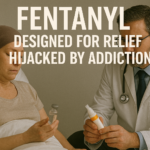 | Apr 27, 2025 – Fentanyl – Designed for Relief, Hijacked by Addiction Originally developed for surgical recovery and cancer pain, fentanyl is now the street drug of choice—and the leading killer. |
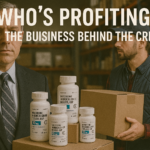 | May 4, 2025 – Who’s Profiting? The Business Behind the Crisis Pharmaceuticals, prescribers, nonprofits, and even governments are profiting while families pay the price. |
 | May 11, 2025 – The Four Pillars: Are They Holding or Crumbling? Prevention, harm reduction, treatment, and enforcement: we analyze which pillars stand strong and which are mere facades. |
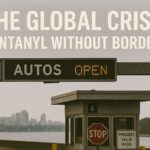 | May 18, 2025 – The Global Crisis: Fentanyl Without Borders How countries across the world—from Canada to China to the U.S.—are facing different strains of the same epidemic. |
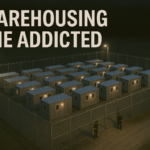 | May 25, 2025 – Warehousing the Addicted Mass shelters, endless services, and no exit strategies—this chapter explores how we’ve built systems that contain, not cure. |
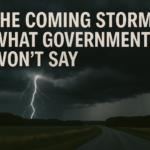 | Jun 1, 2025 – The Coming Storm – What Governments Won’t Say If forced to choose, will governments prioritize the addicted, or those in need of everyday care? |
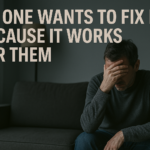 | Jun 8, 2025 – No One Wants to Fix It – Because It Works for Them A final exposé on how the opioid crisis has become a self-sustaining industry with no incentive to end it. |
| Jun 9, 2025 – The Coming Storm – What Governments Won’t Say If forced to choose, will governments prioritize the addicted, or those in need of everyday care? | |
 | Jun 25, 2025 – After the Overdose: Life on the Edge of Survival Surviving a fentanyl overdose is not a return to normal—it’s a chemical reset with a dark pull. Unlike a cardiac arrest survivor, a person revived … |
If you know of someone who is looking for a little help, or perhaps yourself – ask AI using one or more of the following prompts.

For Family or Friends Supporting a Loved One
- “What should I say to someone I love who may be addicted to opioids?”
- “How do I set healthy boundaries with an addicted family member without cutting them off?”
- “Help me understand the difference between enabling and supporting.”
- “What signs should I look for to know if they’re using again?”
- “How can I take care of my own mental health while supporting someone with an addiction?”
- “Can you help me write a message or letter expressing love and concern?”
- “What should I do if they refuse treatment or deny they have a problem?”
- “Is there a way to prepare for an intervention using compassionate language?”
- “How can I help their children cope while the parent is struggling?”
- “I’m exhausted—how can I stop feeling guilty if I need to walk away?”
For General Understanding or Research
“What exactly does fentanyl do to the body and brain?”
“Why is opioid addiction so hard to treat?”
“How does trauma relate to addiction?”
“What are realistic expectations for someone entering recovery?”
“Can you explain the stages of addiction and recovery in plain language?”
For Individuals Struggling with Addiction
“Help me create a plan to reduce or stop my opioid use safely.”
“What are some ways I can manage withdrawal symptoms at home until I see a doctor?”
“Can you help me find long-term goals to stay motivated while in recovery?”
“What are some healthy routines or habits to replace drug use?”
“I keep relapsing. What are practical steps I can take to get back on track?”
“How can I rebuild trust with people I’ve hurt while I was using?”
“Help me write a letter to my future self to stay strong through recovery.”
“What are some anonymous online groups I can connect with right now?”
“How can I recognize and avoid my personal triggers for using?”
“Can you help me track my progress, emotions, and cravings day by day?”
